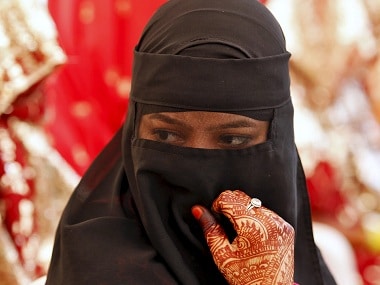As a five-judge Constitution bench of Supreme Court begins its historic hearing on a plea whether triple talaq is fundamental to Islam, here’s the story of Shayara Bano. After being married for 15 years, Shayara’s husband gave her triple talaq in October 2015. The woman from Uttarakhand then approached the Supreme Court in 2016, challenging the validity of arbitrary practices against women followed by Muslims. [caption id=“attachment_3437742” align=“alignleft” width=“380”]  Representational image. Reuters[/caption] Her petition seeks the Supreme Court to declare talaq-e-bidat, polygamy and nikah halala illegal and unconstitutional on the grounds that they violate the rights guaranteed by the Constitution under Articles 14, 15, 21 and 25. Shayara’s husband has opposed her plea on the ground they were governed by the Muslim Personal Law and all three discriminatory practices are sanctified provisions under the very same law. However, under the Constitution, religious freedom is subject to all other Fundamental Rights. Article 25 — which guarantees Freedom of Practice and Propagation of Religion — does not protect religious practices since they can negatively affect the welfare of citizens. Article 14, which guarantees the Right to Equality, overrides Article 25 because triple talaq denies a Muslim woman’s equality before the law. Similarly, Article 25 is subject to Article 15 (1) which says that the State “shall not discriminate against any citizen on grounds only of religion, race, caste, sex…” Since triple talaq does not work in the favour of women, it violates Article 15 (1) of the Constitution. The Supreme Court’s decision will affect many women victims in the country and those who are vulnerable to the instantatenous oral and unilateral triple talaq.
As a five-judge Constitution bench of Supreme Court begins hearing on a plea challenging validity of triple talaq, here is a look at the Shayara Bano case.
Advertisement
End of Article


)

)
)
)
)
)
)
)
)



